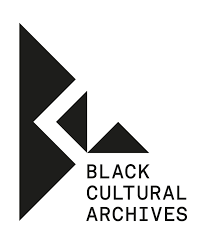
‘DEFEND YOURSELF, UNITY IS STRENGTH’
THE BRIXTON DEFENCE CAMPAIGN (1981-1985)
The Scarman Inquiry
After the April uprising in Brixton the Home Secretary William Whitelaw appointed Lord Leslie Scarman to ‘inquire urgently into the serious disorder in Brixton on 10-12 April 1981 and to report, with the power to make recommendations'. The Brixton Defence Campaign called for a boycott of the Scarman Inquiry as it argued that evidence given during the course of the inquiry would ‘only further incriminate defendants’ and that any resulting recommendations of the inquiry ‘will further oppress the Black communities of this country’.
Crucially for the Brixton Defence Campaign, Lord Scarman inferred immunity would not be granted to people who were mentioned during the course of another person giving evidence to the inquiry. This would therefore ‘prejudice the legal position, and therefore endanger the liberty of all defendants yet to be tried’. The Brixton Defence Campaign were also concerned that Lord Scarman would not be able to guarantee participant anonymity. This fear was confirmed when details regarding Black youths and persons who gave evidence were later leaked to the press.
Boycott
The Brixton Defence Campaign asserted that the political history of Lord Scarman could not be ignored: most notably that his inquiry into the Grunwick dispute (1976-78), the Red Lion Square disorder of 1974 and the violence and disturbances in Northern Ireland (1969), did not lead to ‘radical solutions’. Instead the campaign argued, his work had resulted in ‘more repressive action on the part of the State.’
The Brixton Defence Campaign believed the inquiry was an ‘empty opportunity’ for the Black community to testify about the oppression and harassment they were facing in Brixton, considering what they believed was a wealth of evidence already available to support this, including the ‘Final Report of the Working Party into Community Police Relations in Lambeth’ of 1981, which they felt had not been responded to. The campaign stated ‘This report is more substantial than anything Scarman is likely to come up with. Black people in the Borough were actively involved in collecting and giving evidence for this report. It adequately describes the relationship between black people and the police.’
Despite the Brixton Defence Campaign’s efforts to dissuade participation, other Black organisations such as the Melting Pot Foundation, Brixton Neighbourhood Association, and Brixton Domino Working Men’s Social Club supported the inquiry. The campaign classified these groups as ‘persistently working against the interests of the Black community.’ In the aftermath of the uprising, these opposing views underline the tensions and differing opinions within Black communities regarding Lord Scarman’s investigation.
[Image- MCKENLEY/3/1: The Brixton Defence Campaign says - Boycott The Scarman Enquiry"]


